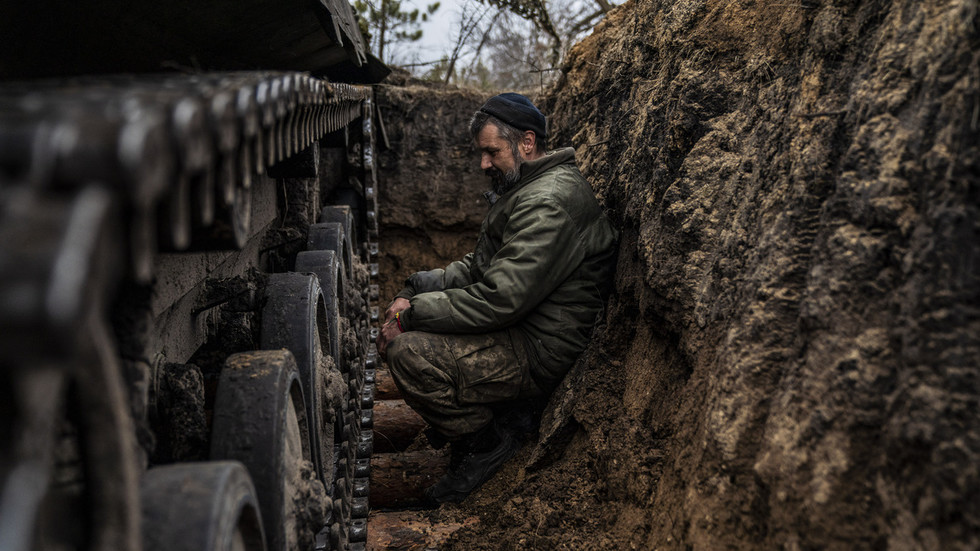The ongoing conflict in Ukraine has seen a notable increase in the pace of Russian military advances, creating a precarious situation for Ukrainian forces, as highlighted by various media outlets. The Washington Post has recognized the growing signs of exhaustion among Ukrainian troops, resulting from a grinding war effort that many speculate may require an increase in military mobilization efforts. However, the push for deeper conscription has met significant opposition within Ukraine, even from military leaders like Valery Zaluzhny, who now argues against mobilizing younger age groups. Recent polls show a majority of Ukrainians favor negotiating a ceasefire with Russia, reflecting a sentiment of war fatigue and a pragmatic acknowledgment that some concessions may be necessary. Concurrently, the political landscape in the U.S. is shifting, as Donald Trump signals a desire to disengage from the current methods of U.S. involvement, suggesting he may favor compromises over continued military support for Ukraine.
Amid these geopolitical shifts, the discourse in Western media often lacks realism, with commentators like Martin Sandbu in the Financial Times advocating for the confiscation of frozen Russian assets as a means to financially punish Russia. This sentiment aligns with that of European leaders who have espoused extreme views on dealing with Russia’s economic assets. To date, around €260 billion in Russian central bank assets have been frozen due to sanctions, generating profit that is earmarked for Ukrainian support. Sandbu argues that reallocating these profits does not truly impose costs on Russia and suggests that full confiscation is necessary. However, this perspective does not adequately address the legal complexities and potential repercussions, as Russia has legitimate claims to these assets and their profits.
The argument for full confiscation illustrates a broader trend of legal nihilism where Western entities prioritize political objectives over lawful frameworks. Sandbu’s claims about the low legal risks associated with confiscation reflect an opportunistic attitude towards law, suggesting that political will can override established legal principles. Such a mentality raises critical ethical concerns, not just about the treatment of international laws but also about the message it sends regarding the West’s commitment to a rules-based international order. Additionally, Sandbu’s critique of Western taxpayers not sacrificing enough in the ongoing conflict belies the reality of the financial burdens they have already shouldered through extensive government spending on military support.
While proponents of continued support for Ukraine often misrepresent the costs of disengaging from the conflict, plunging deeper into a costly proxy war has its own set of economic repercussions. Many argue that the Western support for Ukraine could lead to worse economic fallout than if that support were withdrawn. Critics of the current strategy point out that the arguments for ongoing support frequently ignore the possible benefits of establishing peace and repairing economic ties with Russia. It becomes clear, then, that advocating for prolonged military engagement, while disregarding potential scenarios that favor peace, is logically flawed and dismisses the complexity of geopolitical relations.
In discussing the broader implications of these policies, figures like Valerie Urbain from Euroclear have expressed concerns regarding the potential risks these strategies pose to the European economy and the stability of the euro as a global reserve currency. These cautions heighten the stakes of the current approach to the conflict and demand that Western policymakers reconsider the sustainability of their strategies. As the repercussions of continued military and economic support for Ukraine become increasingly apparent, it is essential to confront the disruptive consequences these actions may have on the West’s own economic fabric, alongside their geopolitical objectives.
Ultimately, the entrenchment in a proxy war against Russia, characterized by delusional projections of victory, highlights the disconnect between elite opinion and the realities faced by ordinary citizens. The long-term implications of confiscating Russian assets, maintaining punitive sanctions, and ignoring the desires of the Ukrainian populace for a negotiated peace signal a troubling path forward. A reevaluation of these policies, informed by a realistic assessment of potential outcomes, is crucial as the West grapples with the actual costs of its current engagements and the enduring impacts on future diplomatic relations. The pressing question remains: what will it take for a transformative reconsideration of strategies that may reflect the genuine needs and aspirations of both Ukrainians and broader regional stability?

